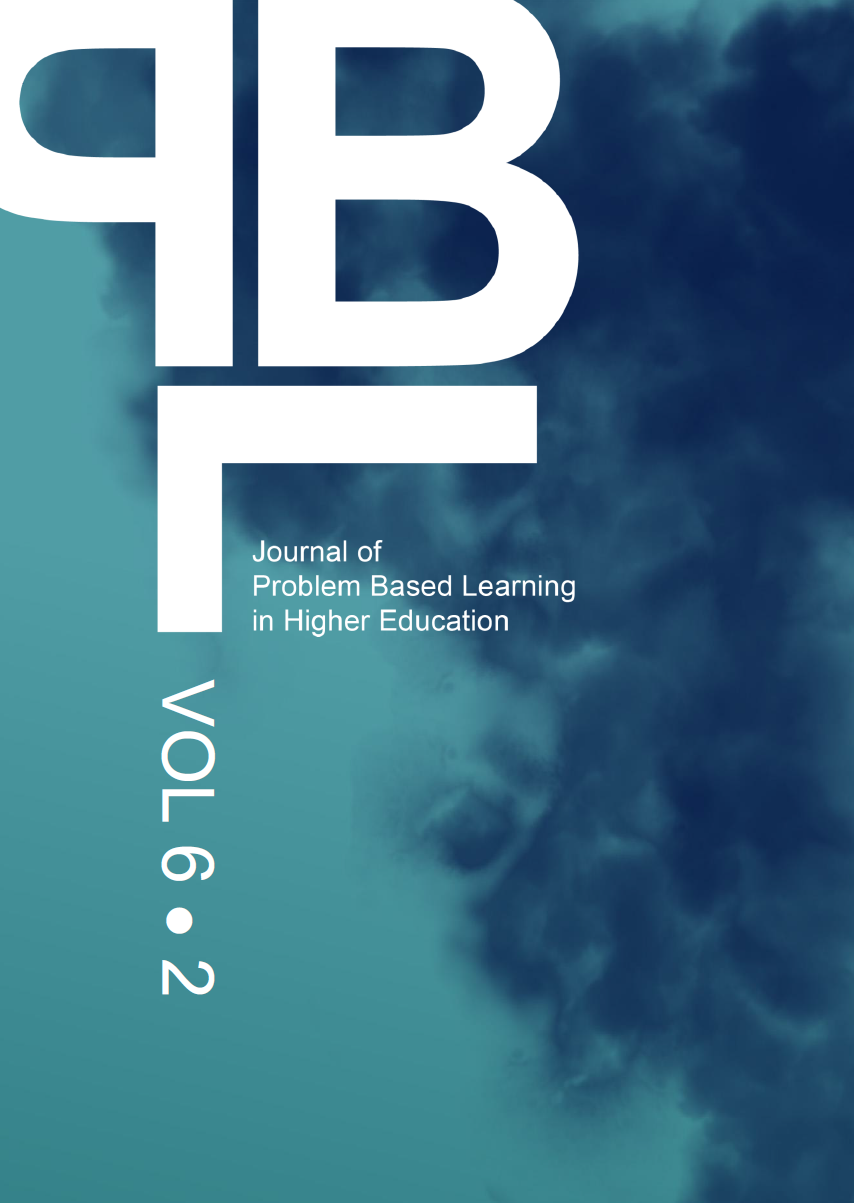Abstract
Problem-based learning (PBL) is widely recognised as a pedagogical approach across disciplines. However, the relevance and application of PBL in psychology has received limited attention. Therefore, this article presents a PBL-based master degree programme for psychologists. The article is divided into three sections. First, we present the rationale and need for developing this programme. Secondly, the programme curriculum is described in details and, third, the programme’s practical and theoretical aspects and potentials are discussed in light of PBL principles.
References
Engel, G. L. (1977). The need for a new medical model: A challenge for biomedicine. Science, 196 (4286), 129-136.
Hald, S. (2012). Music therapy, acquired brain injury and interpersonal communication competences: Randomized cross-over study on music therapy in neurological rehabilitation. Aalborg: Det humanistiske faktultet. PhD-afhandling. http://vbn.aau.dk/files/68463687/Phd_Soren_Hald_2012.pdf
Haynes, S.C. (2004). Acceptance and commitment therapy, relational frame theory, and the third wave of behavioral and cognitive therapies. Behavior Therapy, 35, 639-665
Hmelo-Silver, C.E. (2004). Problem-Based Learning: What and How Do Students Learn? Educational Psychology review, Vol. 16 (3), 235-265.
Kennedy, P. (Ed.) (2012). The Oxford Handbook of Rehabilitation Psychology. Oxford University Press.
Kolmos, A., Fink, F.K. & Krogh, L. (Eds). (2006). The Aalborg PBL Model. Progress Diversity and Challenges. Aalborg University Press.
Pallesen, H. (2011). 5 år efter apopleksi – fra sygdom til handicap. Odense: Det Sundhedsfaglige fakultet, Syddansk Universitet. PhD afhandling.
Rivera, P., Elliott, T. R., Berry, J., Shewchuk, R., Oswald, K. & Grant, J. (2006). Family caregivers ofwoman with physical disabilities. Journal of Clinical Psychology in Medical Settings, 13, 431-440.
Stokking, K., Leenders, F., De Jong, J. & Tartwijk, J. V. (2003). From student to Teacher: reducing practice shock and early dropout in the teaching profession. European Journal of Teaching Education. Vol. 26 (3), 329-350.
World Health Organization (2001). International classification of functioning. Disability and health (ICF). Geneva: WHO.
Articles published in Journal of Problem Based Learning in Higher Education are following the license Creative Commons Attribution 4.0 (CC-BY)
Authors retain copyright and grant the journal right of first publication with the work simultaneously licensed under a Creative Commons Attribution 4.0 International License (CC-BY). Further information about Creative Commons
